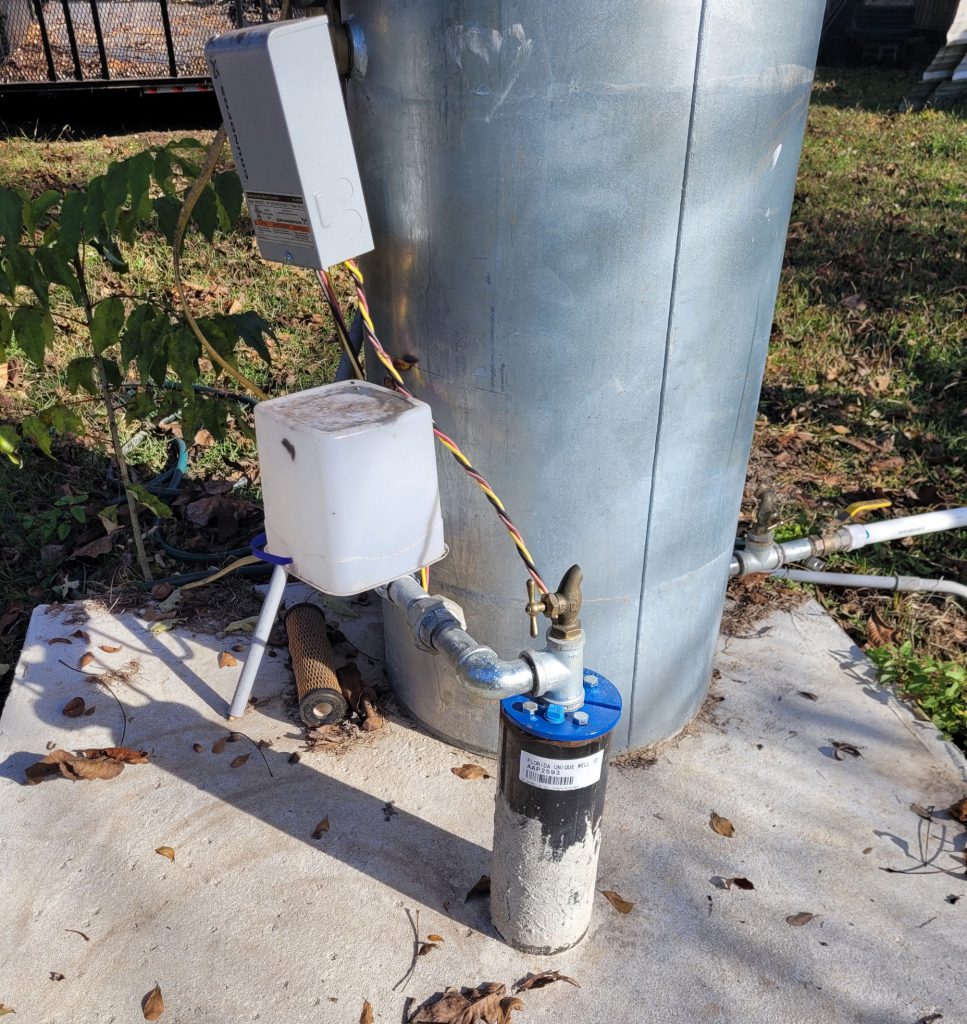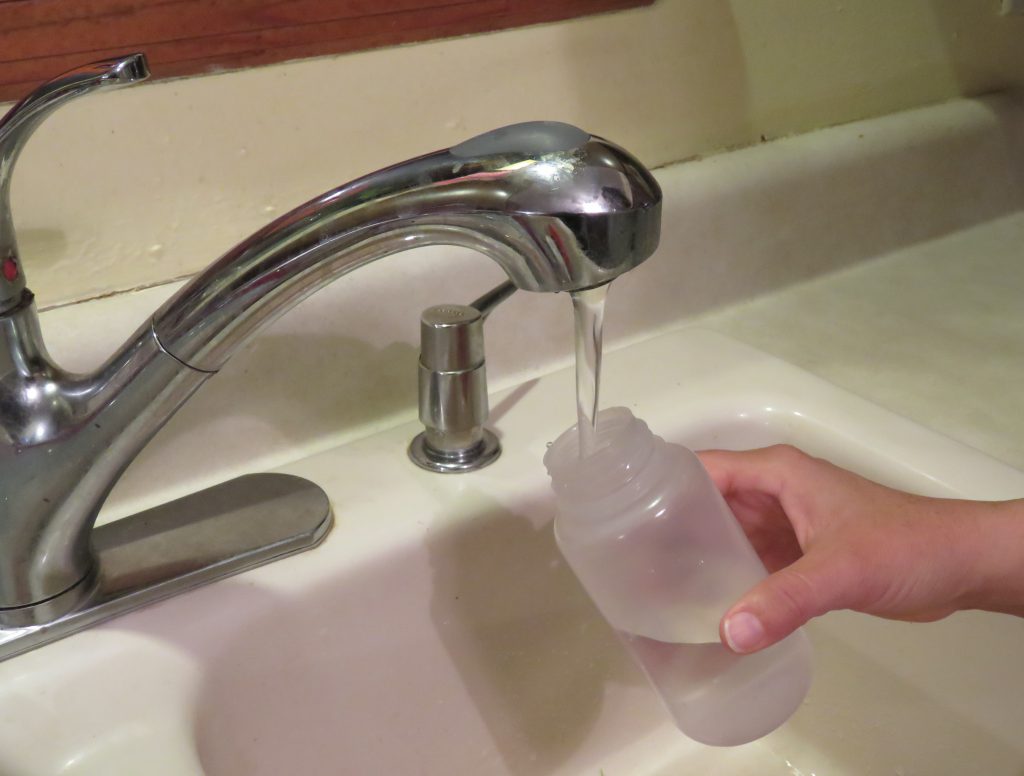
Many residents in the Florida Panhandle rely on groundwater from private wells for home consumption. While public water systems are regulated federally to ensure safe drinking water, private wells are not regulated. Well users are responsible for ensuring the safety of their water.
Recommended practices to protect your well water quality
Basic care at and around your well will reduce the risk of contaminating your well water.
- Make sure that the well is properly sealed at the surface to keep pollutants from getting directly into your well and groundwater. A sanitary seal or sanitary well cap (which caps the surface end of the well casing) keeps surface water, pathogens, insects and other animals, chemicals, liquid fuels, and debris from getting directly into your well. Grout, which works as a sealant, is used to fill the space between the well casing and the edge of the borehole when a well is drilled. It prevents surface water from flowing down along the outside of the well casing directly to the groundwater being drawn by the well.
- Keep the area around your well clean and accessible.
- Make sure there is at least a 75 ft separation distance between your well and your septic system (this is required in Florida).
- A well shouldn’t be close to (no less than 75 ft) or downhill from an animal enclosure.
- Don’t store chemicals, fertilizers, or fuel near your well or in a well house.
- Don’t use a well (residential or agricultural) as a chemical mixing station.
What should you test your well water for and where can you have it tested?

At a minimum, the Florida Department of Health (FDOH) recommends testing drinking water annually for bacteria (total coliform bacteria and fecal coliforms, usually E. coli). Other contaminants that they recommend testing for include nitrate, lead, and pH.
Depending on where you live and current or past activities in your area, other contaminants may affect your well water quality. Call your local health department to see what they advise testing for. It’s also important to reach out to them for testing recommendations when:
- There is a change in the taste, appearance, or odor of your water
- There is recurring gastrointestinal illness or other unexplained illness in the household
- Your well is flooded or damaged
- You have a spill of oil, liquid fuels, solvents, or other chemicals into or near your well
- Any time services or repairs are done and the sanitary seal on your well is opened
Many county health departments provide testing for bacterial contamination at a minimum. If they do not offer testing for a particular contaminant, they can help point you to commercial labs in the area for testing. The Florida Department of Environmental Protection (FDEP) also maintains a list of certified water testing labs, which you can search by county. Through good maintenance practices and annual testing, you can help maintain your well water quality.
- What to Do if a Sinkhole Opens on Your Property? - June 6, 2025
- Workshop on Private Well and Septic System Basics - October 18, 2024
- Septic system maintenance after a flood - June 7, 2024
